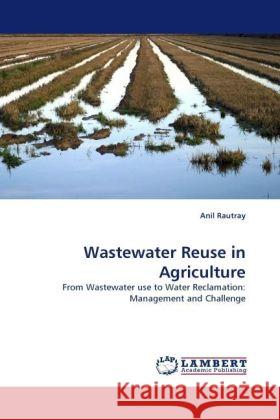Wastewater Reuse in Agriculture : From Wastewater use to Water Reclamation: Management and Challenge » książka
Wastewater Reuse in Agriculture : From Wastewater use to Water Reclamation: Management and Challenge
ISBN-13: 9783838328812 / Angielski / Miękka / 2010 / 104 str.
Wastewater Reuse in Agriculture : From Wastewater use to Water Reclamation: Management and Challenge
ISBN-13: 9783838328812 / Angielski / Miękka / 2010 / 104 str.
(netto: 208,74 VAT: 5%)
Najniższa cena z 30 dni: 218,66
ok. 10-14 dni roboczych.
Darmowa dostawa!
Shorttitle:Treated wastewater may be reused for different purposes such as landscape irrigation, industrial uses, groundwater recharge or in agricultural use. Reusing effluent for irrigation can be the best way to utilize the wastewater since it removes many of the nutrients that are not removed with primary and secondary treatment processes. The feasibility of wastewater reuse ultimately depends on the cost of reclaimed wastewater relative to alternative supplies of water, and on public acceptance of the reclaimed wastewater. For social efficiency, every wastewater treatment decision must balance many variables and find the combination with greatest net benefit. This report presents an assessment of the viability of wastewater reuse in agriculture taking a commune in Cambodia as a case study. Following the definition of general guidelines for wastewater reuse for irrigation, the assessment examines the main challenges for developing water reuse, with emphasis on the choice of treatment method, economics, water quality issues, and social value of recycled water. The study showed that the utilization of treated effluent in irrigation is profitable for some crops.











